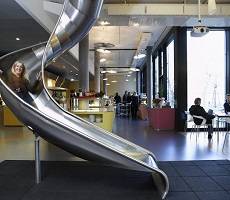June 2, 2014
Flexible working might help firms to deal with World Cup fever, claims ACAS
 While FIFA works out whether it wants to dig itself in deeper or climb out of its own hole in addressing the World Cup bribery scandal, thoughts in the business world about this Summer’s quadrennial festival of football turn, yet again, to the matter of how to deal with it all. One of the first up with suggestions this time is the UK employment conciliation service agency ACAS which thinks the answer no longer lies in turning a blind eye to what people get up to, but instead working around it. They are urging firms to allow staff to work flexibly during the World Cup so they can watch games with minimal disruption to business. ACAS last month issued new guidance on flexible working in advance of a change in the rights of workers to request flexible working at the end of June, and is now suggesting that flexible working will help to reduce absenteeism and disruption during the tournament in Brazil which begins on June 12.
While FIFA works out whether it wants to dig itself in deeper or climb out of its own hole in addressing the World Cup bribery scandal, thoughts in the business world about this Summer’s quadrennial festival of football turn, yet again, to the matter of how to deal with it all. One of the first up with suggestions this time is the UK employment conciliation service agency ACAS which thinks the answer no longer lies in turning a blind eye to what people get up to, but instead working around it. They are urging firms to allow staff to work flexibly during the World Cup so they can watch games with minimal disruption to business. ACAS last month issued new guidance on flexible working in advance of a change in the rights of workers to request flexible working at the end of June, and is now suggesting that flexible working will help to reduce absenteeism and disruption during the tournament in Brazil which begins on June 12.


























May 29, 2014
What is expense management costing you and your business?
by Richard Gyles • Comment, Workplace